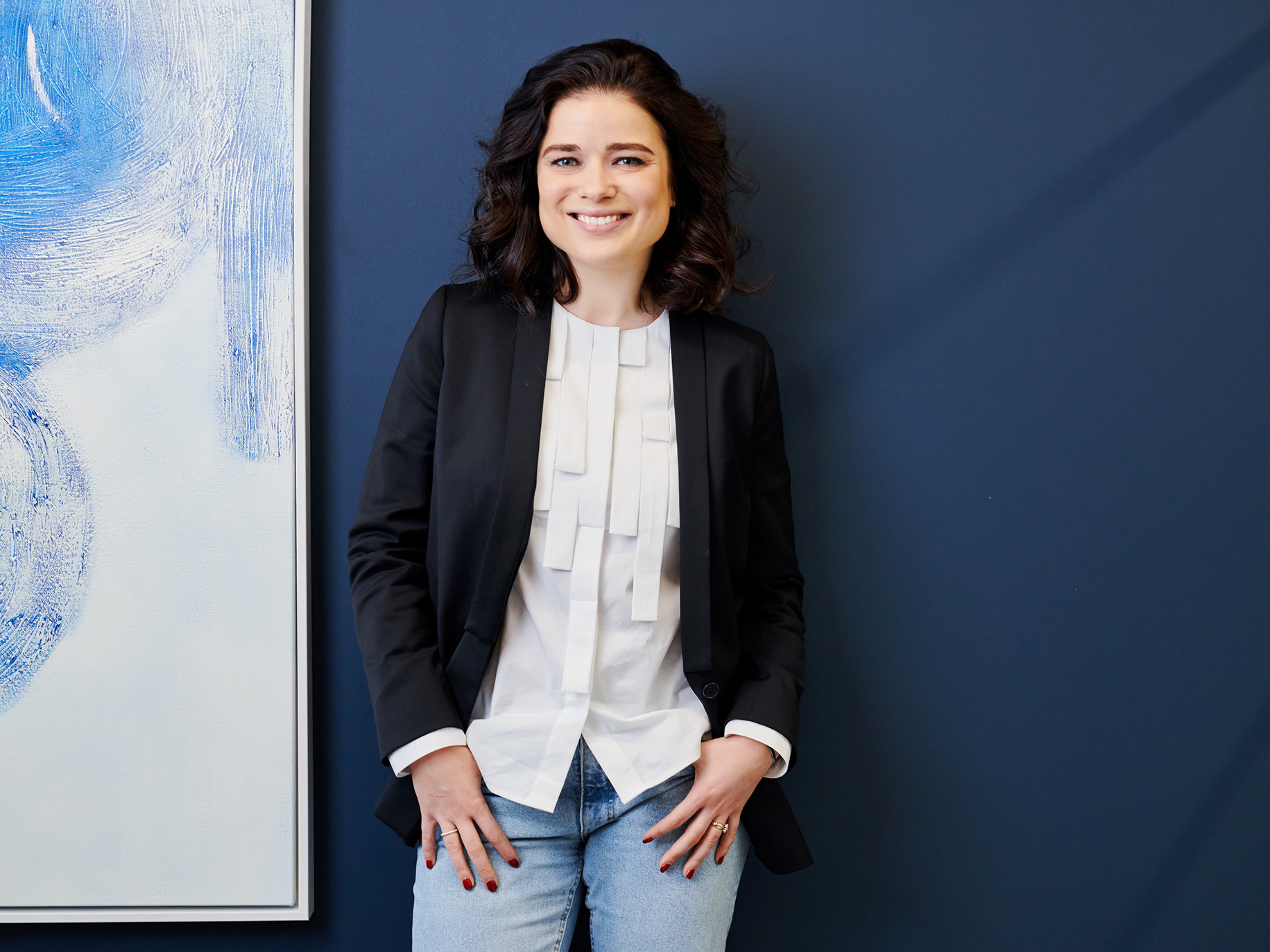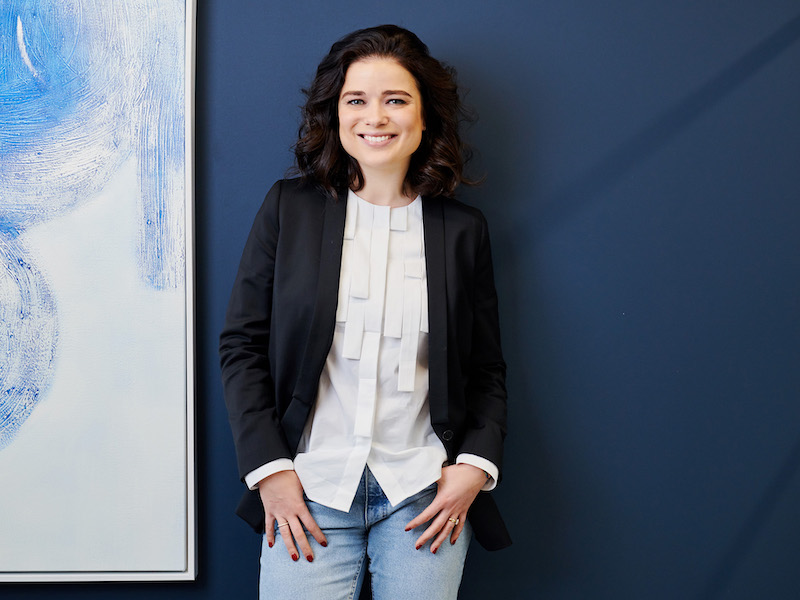Banging the Drum for B2B Fintech: An Interview with Dawn Capital
An interview with Evgenia Plotnikova, Partner, Dawn
Evgenia covers exciting companies in B2B software across Europe. She started her career at J.P. Morgan in London and Dubai, and has worked in private equity and venture capital ever since, executing deals in tech, telecommunications and retail for leading players TPG Capital, Atomico and now Dawn. She was named in Forbes’ 30 Under 30 list of leading young entrepreneurs, innovators and game changers in 2017, and judged its prestigious Finance category in 2018. In 2019, Evgenia was promoted by Dawn to become one of Europe’s youngest ever female VC partners. Prepaid card provider and Dawn portfolio company, Soldo, discovers how Evgenia and her team discover opportunities in a crisis.
What is Dawn’s investment strategy, and has it changed in response to COVID-19?
We are one of the one of few funds in Europe to focus entirely on B2B software. This has been our remit for over a decade. Our entrepreneurs are extraordinarily focused, and we feel that we should be just as focused too: we believe being sector specialists gives us an advantage.
Our portfolio companies primarily fit into one of four categories: data, security, the future of work and fintech. Fintech is obviously a big vertical for us, and within that we tend to look at either software companies selling into financial institutions, or those that target the finance function. Soldo is a prime example of the latter.
One of the main reasons we backed Soldo is that we’ve done a lot of work in the broader financial services industry, and spend management consistently came up as a potential area of interest. Soldo is a clear-cut winner in the space, which is why we were so excited to back Carlo [Gualandri, founder].
In terms of stage, we tend to back companies at Series A and B – where they are likely to have achieved product/market fit and are looking to turbocharge their growth by scaling people and processes. We have been great at figuring out the nitty gritty questions that come with scaling the sales, marketing and customer success functions: your pan-European domination if you’re a fintech business, or perhaps your shift to the US if you’re a software pure-play.
We now have a portfolio of over 40 businesses that have gone through the same journey and who fit comfortably in an extended family. Part of our job is to pass on the knowledge that we, and the portfolio companies that have gone before them, have learned over the years.
COVID-19 has not changed our investment strategy, although of course we have spent plenty of time and effort supporting our portfolio and their teams. And as early-stage businesses, they can be particularly vulnerable. But we are bullish. My colleague Norman [Fiore] recently wrote, “One might claim our bullishness on the prospects of tech is myopic cheerleading for an industry that pays our wages. No. There is one thing that the crisis has accelerated that makes up for all the damage COVID-19 has done to the economy. And that is the acceleration of digitalisation. In the face of COVID, with our old lives upended, ships burned and forced westward, we have all become digital pioneers.” Our economies are undoubtedly in for a challenging few years ahead, and there are plenty of tech firms which will suffer too. But we also believe that through any change there are opportunities, and we will see tech reach groups of people and use cases which were unimaginable six months ago.
We strongly believe that the unit economics of B2B fintech have proven time and time again to be stronger [than consumer]. B2B customers may be harder and more expensive to acquire, but when you have a great product, they are easier to retain.
What does a fintech need to do to turbocharge its growth? They face the challenges of regulation. Going international, for example, isn’t easy for a fintech in the way that it is for a marketplace or a piece of B2B SaaS software.
Sure, and I think with Soldo we’ve taken the fantastic approach of covering all of their bases: they’re FCA regulated but also have an e-Money license, which positions them as potentially a unique player.
But because we target B2B exclusively, I think there are some recurring themes across our portfolio. The recurring questions that come up are typically around scaling sales and go-to-market. Whether you are a fintech or not, it’s about figuring out what the right sales profile looks like, or what marketing channels will work, whether that’s pure lead generation, a partner program or the many other channels competing for client dollars and market attention.
We saw this playbook through iZettle, where we came in early, and were lucky enough to stay with them all the way through to their acquisition by PayPal. We consistently see a recurrence of these challenges in scaling the go-to-market and sales machines, and marketing and customer success operations, particularly for the older fintechs seeking to become pan-European champions.
It’s interesting you mention customer success because, whilst digital has disrupted customer expectations in general, in financial services we seem perfectly happy to stick with atrocious providers with terrible NPS scores. Consumer or business, the next-gen fintechs have to try incredibly hard to get customers to migrate.
That’s why we only like B2B! There are, of course, some phenomenal consumer plays in fintech out there. But we strongly believe that the unit economics of B2B fintech have proven, time and time again, to be stronger. B2B customers may be harder and more expensive to acquire, but when you have a great product, they are easier to retain. Soldo involves initially interacting with the finance function but ultimately with every employee in an organisation, so expansion of the license allows us to see exceptional growth.
But companies also have longer lead times for making decisions than consumers. They wait for things to go wrong before making big changes. They require different engagement and sales processes…
Which is where we come in! As I said, we are good at helping people scale their sales and go-to-market strategies in order to achieve market and category domination.
First, we have an exceptional B2B software segment network. That includes other founders, executives, and experienced partners across the globe, including B2B search firms, bankers, board members, advisors, mentors and more.
Second, whilst we start investing early, we can stay with founders through subsequent rounds. That process involves structural and financial re-engineering at each stage. We help our founders to retool and professionalize all the way to exit. We have investment partners across the world and make relevant introductions to promote our portfolio companies, help them sell the right story and achieve appropriate forms of finance as they grow.
Finally, we ourselves are a blend of curiosity and creativity with an array of operational and academic talents to help founders. Haakon [Overli] founded Self Trade, the online share dealing platform, and has been a fintech entrepreneur for over two decades. Josh [Bell], who heads up our fintech investments, was a game theory academic at Harvard, a McKinsey analyst and remains a recognised financial services expert across Europe. And then Mina [Mutafchieva] and I joined from the world of private equity, where we worked with the management teams of larger European businesses on their strategy and operations. These are skill sets devoted to creating and executing scale.
We’re speaking just after the direction of Brexit has become a little clearer and since COVID-19 wiped all bets off the board. You operate across Europe, so what are your predictions for Europe-wide investments?
We have been pan-European since day one and always will be. It’s unfortunate that politics comes into play, but I think that for us, Brexit heralds absolutely no change. It’s business as usual. We believe that there’s no geographic monopoly on talent, so we’ll go hunting for the best and most exciting businesses, wherever they come from, whether in London, Paris or Berlin – or indeed Klagenfurt in Austria, where one of our investments is headquartered.
COVID-19 is a different ball game. Right now, the simple act of flying to another European country has drastically changed. Working patterns and locations have also been completely altered, with some organisations saying they will remain for the long-term. From an investment perspective, this will change some of the dynamics of due diligence and relationship building with founders. Although that won’t be a deterrent by any means, for us it is business as usual (albeit remotely) and we recently announced our first fully remote investment in BRYTER the no-code automation platform headquartered in Berlin.
As we focus on B2B software, and whilst some companies have been affected by COVID-19, there have also been significant opportunities, including for those capitalising on remote and automated working, no-code and building new enterprise tools. For the best of European startups, we don’t anticipate change in investment. Excellent businesses will continue to be excellent businesses, and will see increasing demand for their solutions. COVID-19 has also brought to light new opportunities for innovation and digitisation in more analog industries, such as travel, energy and education. So for European founders and startups at the forefront of these solutions we expect to see more funding opportunities.
You said there’s no barrier on talent. A lot of other VCs have suggested that the one thing they genuinely worry about is access to talent, especially for specific demands in the market like coding, data visualisation, UX…
Being bold, attracting talent and scaling your teams are the most important challenges any founder faces. One of the most important things that we as a VC call on of our portfolio CEOs is making sure that they have the best possible talent in any given function.
The best companies will end up attracting the best talent, regardless of their location.
For example, an increasing number of talented and experienced executives are moving back from the US, having seen the seismic shifts in European tech. It’s exciting to see these more experienced VP and C-level execs exiting later-stage startups and coming back to find second-time-around roles in younger startups. On the back of COVID-19 organisations are rewriting the rules on working arrangements. We expect that for those offering genuine flexibility for where employees can live and work, more doors will open to attract the best talent.
On top of that, we have a new generation of talent coming out of universities. The UK, like many European countries, has some wonderful technical universities with fantastic engineering degrees putting out a steady flow of next-generation managers, thinkers and thought leaders. So I have no doubt that we will continue to see great success and talent out of Europe, whether that’s in London or elsewhere.
The best companies will end up attracting the best talent, regardless of their location.
How do you validate ideas that cross your desk at Dawn?
Ultimately, what got us excited about Soldo was the phenomenally large market opportunity. It amounts to around 20m SMEs across Europe – and that’s without tapping into the larger corporate and enterprise opportunity that lies in front of them. In venture capital, that matters because we are looking for outsized opportunities which will benefit from the support we provide.
We’re also attracted to propositions that have found product/market fit, and one way to measure that is customers loving and actually buying the product. Soldo’s founders have seen exceptional growth throughout their journey and that was instrumental in convincing us that they’ve got a winning product.
We also like founders who understand the value chain in their markets and can demonstrate this through viable unit economics. Carlo and his team have got themselves the regulatory approvals that prove their unit economics, and have also worked closely with a range of partners to show that their business model works.
Finally, it all comes down to the team. Carlo is a phenomenal CEO and entrepreneur. He’s humble enough to hire people that are absolute A-star performers in every function and often the leading experts in their sectors. He’s succeeded in bringing in people from Xero, Dropbox and a whole array of successful digital businesses and startups. He’s surrounded himself with a bench that is extraordinarily deep and experienced at every level. We love seeing CEOs and founders do that.
The number one criterion is to understand the market. But also, be a fantastic leader and be humble enough to hire people who will lead the way in every function.
What’s getting you excited at the moment? There are some clear threads in your past investments – for example, decentralisation and governance, especially with Collibra…
We’ve been really good at identifying the recurring themes in our core areas of expertise. Collibra is a business which has grown up fantastically. It’s Belgium’s first unicorn and we couldn’t be more excited to have been an early backer.
But in terms of future trends, we’ve taken our learnings about data from the likes of Collibra, and applied them to back companies like Eigen Technologies and Contexta, which lead the way in their own segments – but in the same broad thematic area of what we see as the ‘picks and shovels of a gold rush’ opportunity for every enterprise to be data driven.
Similarly, within security, we were early backers of Mimecast, which went to IPO in 2015. We’re taking the lessons from there to Zivver and Garrison, businesses which also think about security in a very multi-layered and platform-like way.
Ultimately, what gets us excited is businesses which allow us to stay true to the themes in which we have become experts. When we look at Soldo specifically, the theme we’re excited about in fintech is tools which have the potential to empower and reshape the finance team. With Soldo, I believe we have found the market’s future success.
This interview is part of a series by Soldo, the prepaid company card solution that makes your expense accounting simple. You can read more interviews from Soldo’s interview series here.








